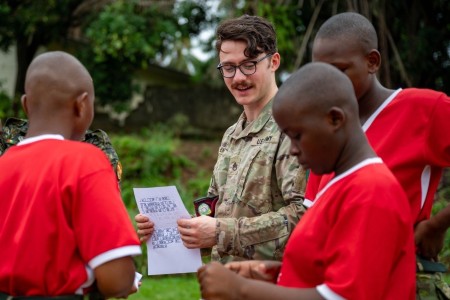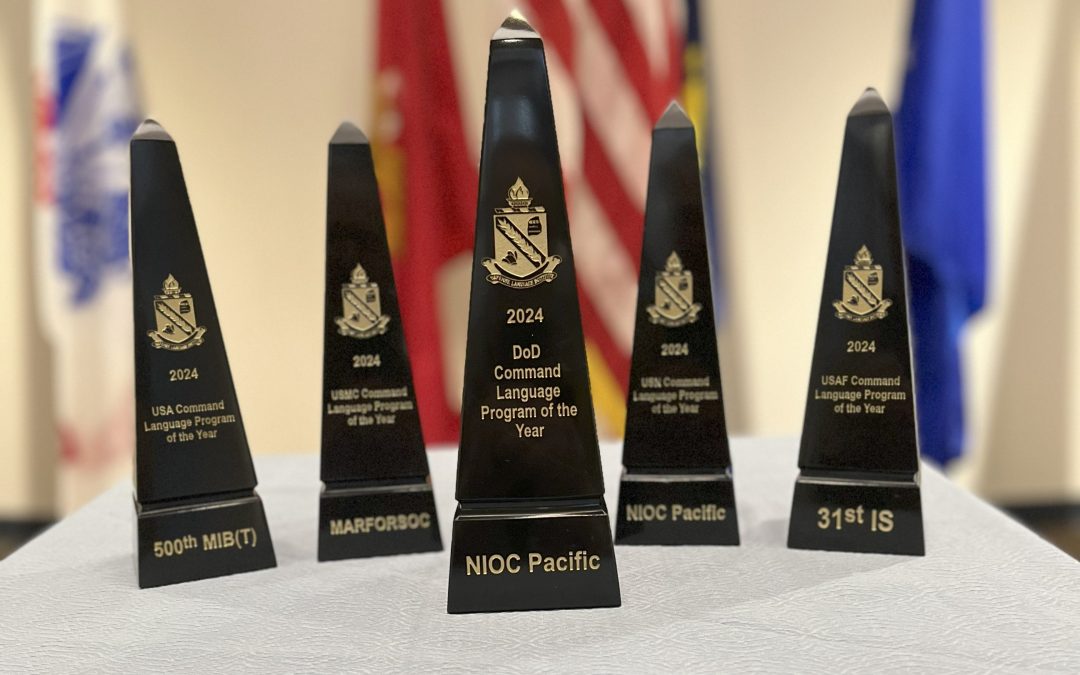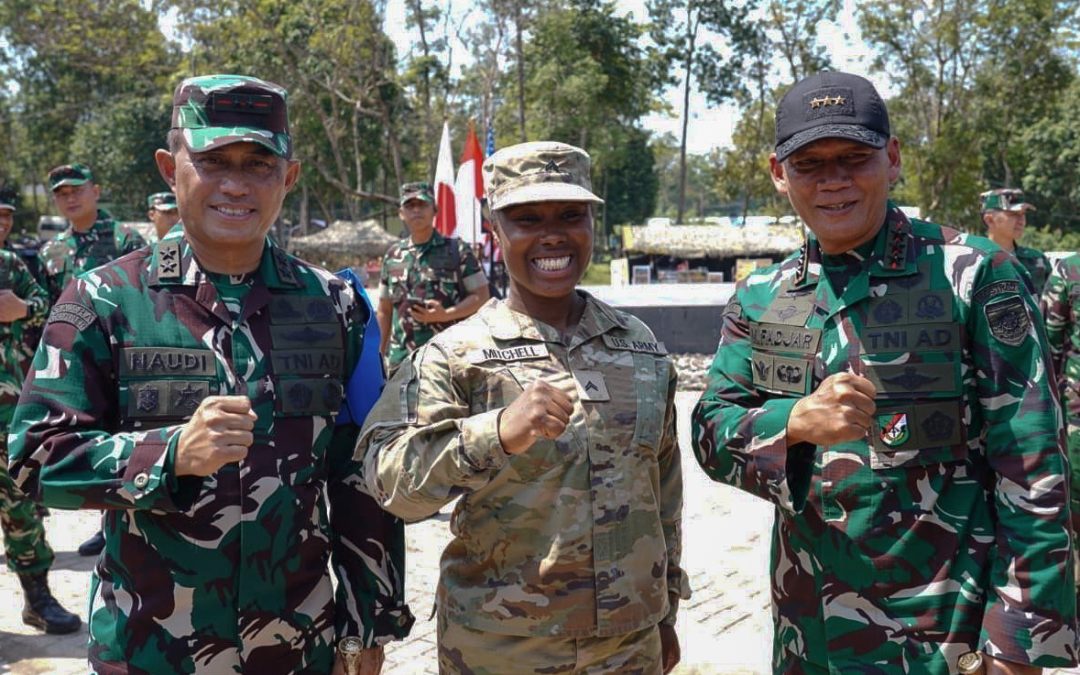By Patrick Bray
DLIFLC Public Affairs

Cole Bunzel, adjunct professor of Near Eastern Studies at Princeton University and leading academic expert on the background of the Islamic State, spoke to Arabic language students at the Defense Language Institute Foreign Language Center July 17. (Photo by Patrick Bray, DLIFLC Public Affairs)
MONTEREY, Calif. – Cole Bunzel, adjunct professor of Near Eastern Studies at Princeton University and leading academic expert on the background of the Islamic State, spoke to Arabic language students at the Defense Language Institute Foreign Language Center July 17.
The Islamic State became a growing concern for U.S. military leaders after it took control of most of Northern Iraq in 2014. Lectures such as this give students an opportunity to learn about potential issues they could be dealing with in their future careers.
Bunzel’s discussion focused on the ideology of the Islamic State and its desire to reestablish the Islamic Caliphate.
“The Caliphate is the state of the Prophet Muhammed. The successor to the prophet is the caliph,” said Bunzel. “It ceased to exist in Islamic history after the Mongols abolished it when they sacked Baghdad in 1258. The Islamic State today believes that the Caliphate is the only legitimate state in the world.”

Cole Bunzel, adjunct professor of Near Eastern Studies at Princeton University and leading academic expert on the background of the Islamic State, spoke to Arabic language students at the Defense Language Institute Foreign Language Center July 17. (Photo by Patrick Bray, DLIFLC Public Affairs)
Bunzel discussed the rise of the Islamic State, beginning with al-Qaeda’s desire to establish a Caliphate in Iraq during the Iraqi insurgency in the early 2000s. Known as al-Qaeda in Iraq, it was led by Abu Mus’ab al-Zarqawi until he was killed by U.S. airstrikes June 7, 2006.
The period between 2006 and 2013 the Islamic State became known as the “paper state,” said Bunzel, as their claim to have founded a state was not being taken seriously and the state existed only on paper or online.
“Outside the narrow world of the jihadi Internet, the announcement of an Islamic State in Iraq drew little attention,” said Bunzel. “The new entity had difficulty convincing either Iraqis or outside observers that it was more than just a new name for al-Qaeda in Iraq.”
After a brief period of disunity from 2013 to 2014, when the group was plagued by infighting both on the battlefield and in the ideological realm, the Islamic State broke with al-Qaeda.

Cole Bunzel, adjunct professor of Near Eastern Studies at Princeton University and leading academic expert on the background of the Islamic State, spoke to Arabic language students at the Defense Language Institute Foreign Language Center July 17. (Photo by Patrick Bray, DLIFLC Public Affairs)
The Islamic State, then known as the Islamic State of Iraq and Syria (ISIS), or the Levant (ISIL), gained the world’s attention when they captured the Northern Iraqi city of Mosul, Iraq’s second most populous city, in June 2014 and declared itself the Caliphate.
A student asked Bunzel how the Islamic State recruits and why Westerners go to the Islamic State.
“It seems like a turn off, but the way they promote their cause brutality actually helps,” said Bunzel. “Surprisingly, 15 percent of their recruits are women. Many Westerners may go because of their heritage, while others for psychological reasons.”
Another student asked Bunzel if the Islamic State poses a valid threat to the U.S.
“Al Qaeda focuses its’ fight on the further regions, in particular the U.S.,” said Bunzel. “The Islamic State focuses on the near. Their drive is to eliminate Shia Islam, but they cannot take the war to Shia areas as of yet, such as Baghdad or Iran. However, there is a threat by those who would be inspired by the Islamic State – the ones who want to go to the Islamic State but cannot.”

Cole Bunzel, adjunct professor of Near Eastern Studies at Princeton University and leading academic expert on the background of the Islamic State, spoke to Arabic language students at the Defense Language Institute Foreign Language Center July 17. (Photo by Patrick Bray, DLIFLC Public Affairs)
Senior Army leadership estimates that the fight against the Islamic State could last 10 to 20 years.
“The Islamic State has momentum. Their motto is ‘staying and expanding,’” said Bunzel, but stopped short, reminding students that nothing is ever certain in the Middle East.




